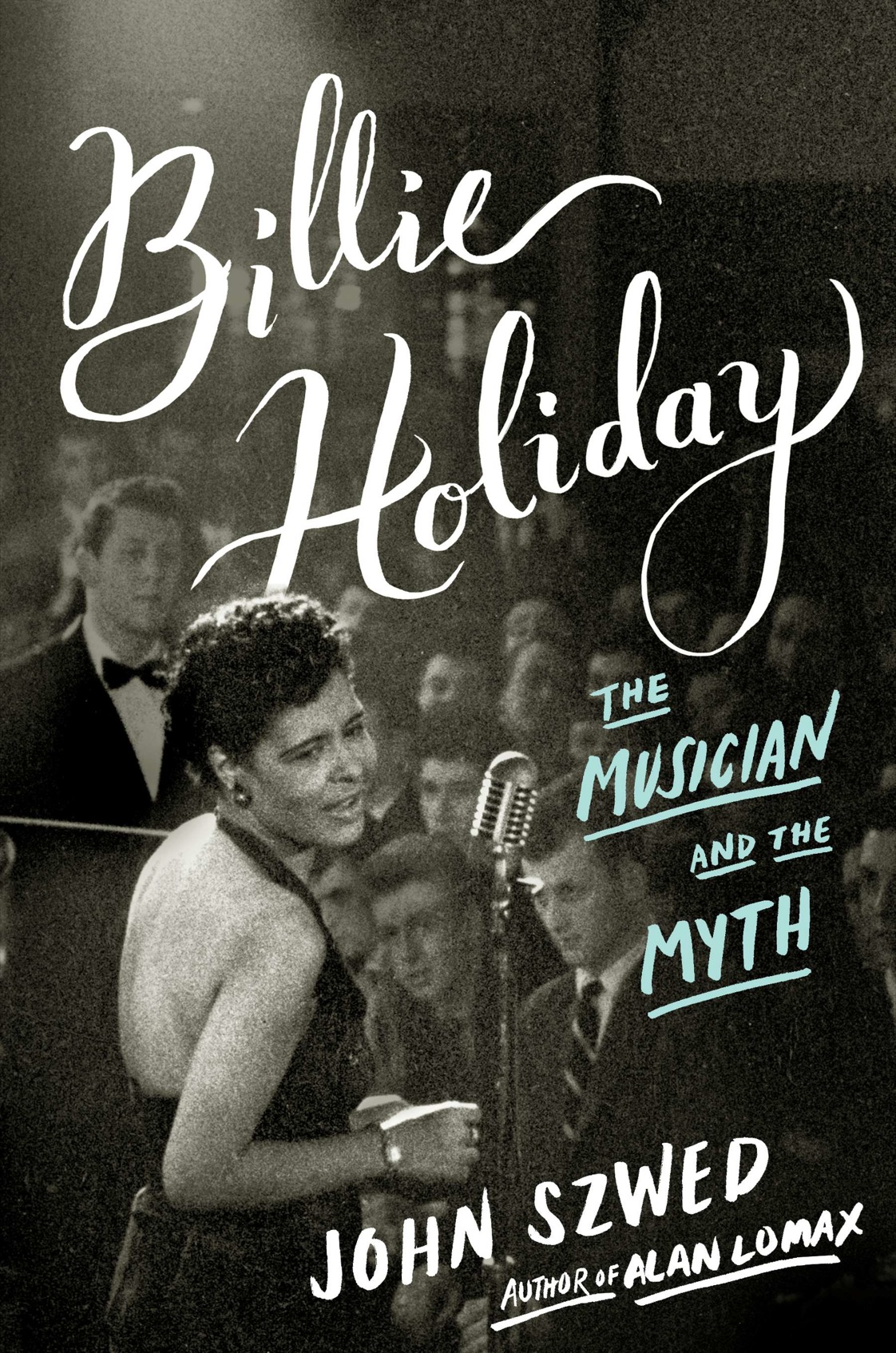
Billie Holiday
The Musician and the Myth
کتاب های مرتبط
- اطلاعات
- نقد و بررسی
- دیدگاه کاربران
نقد و بررسی

June 29, 2015
Unsatisfied with labeling Holiday "the greatest jazz singer of all time," veteran jazz biographer Szwed (Alan Lomax) attempts to deconstruct the entertainer and her vocal magic by puncturing her celebrated public image and her legendary performances. First, Szwed holds Holiday's 1956 provocative memoir, Lady Sings the Blues, to a harsh analytical light. He debunks claims that it trashed jazz and its artists and was written to support Holiday's drug habit, while disclosing the reality that the singer was broke and in tax trouble. He reveals some little-known facts, including that Holiday wanted children desperately and even tried to adopt a baby in Boston but was turned down because of her drug use. He also terms Lady Day's voice as "indelibly odd, and so easy to recognize but difficult to describe," and writes the performer had two different selves: rough, profane, caustic offstage, but witty, kind, and charming onstage. The book really takes off when Szwed gets into Holiday's peerless styling as an improviser and interpreter of torch songs and blues, including the classics "God Bless' the Child," "Don't Explain," and "My Man." Szwed provides an alternative to the gossip and scandal usually associated with Holiday with this highly entertaining, essential take on an truly American original.

Starred review from March 15, 2015
Esteemed music scholar Szwed (Alan Lomax: The Man Who Recorded the World, 2010, etc.) offers a portrait of Lady Day as artist and mythmaker rather than tragic victim. More than any other vocal artist of her era, Billie Holiday (1915-1959) continues to capture the attention of historians and critics. The grim details of her life are, by now, well-known: how she emerged from a background of poverty and prostitution and, for the remainder of her years, struggled with drug and alcohol addiction, abusive relationships, and racism. Szwed does not gloss over these facts, but neither does he dwell on them, instead centering his account on Holiday's enigmatic persona and its relationship to her art. He calls the book a "meditation" on Holiday rather than a strict biography and assumes that readers will have some familiarity with her life story. The first part of the book, "The Myth," is a fragmentary but detailed exploration of how Holiday's persona developed outside of her recordings, focusing on her controversial autobiography Lady Sings the Blues (especially what was edited out of the manuscript) along with her film and TV appearances. The second part, "The Musician," which takes up more than half the book, is an erudite blend of cultural history and musical insight that examines the historical context of Holiday's career, placing her in a lineage of female singers that reaches back to the 19th century. Szwed also takes a close look at Holiday's innovative vocal approach, reminding us that although she had no formal training, she possessed a remarkable gift for improvisation and interpretation, often reshaping melodies to the extent that she essentially rewrote them according to her own idiosyncratic visions. As with the best of Holiday's music, this elegant and perceptive study is restrained, nuanced, and masterfully carried out.

June 1, 2015
Szwed, a seasoned music writer (So What; Space Is the Place), jazz musician, and former Columbia University music professor, attempts to complement the nearly 40 books already written about renowned jazz singer Billie Holiday (1915-59). In an intriguing first section, he provides background about the artist's cowritten autobiography, Lady Sings the Blues, and the deletions from it, especially demonstrating Holiday's close friendships with such celebrities as Tallulah Bankhead and Orson Welles. In a less satisfying second part, the author sometimes unconvincingly traces the musical influences and style of the singer. Szwed rebounds in the third segment, which selectively describes the background and context for some of the most famous songs that Holiday recorded. VERDICT Well written and containing only a few errors, this book offers the general reader a breezy and compelling, though not essential, perspective on the iconic jazz singer just in time for her centenary.--David P. Szatmary, emeritus, Univ. of Washington, Seattle
Copyright 2015 Library Journal, LLC Used with permission.

























دیدگاه کاربران